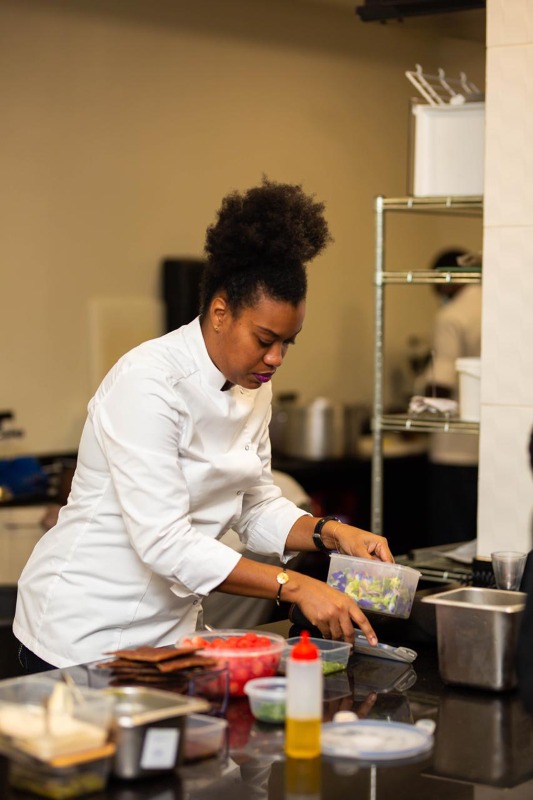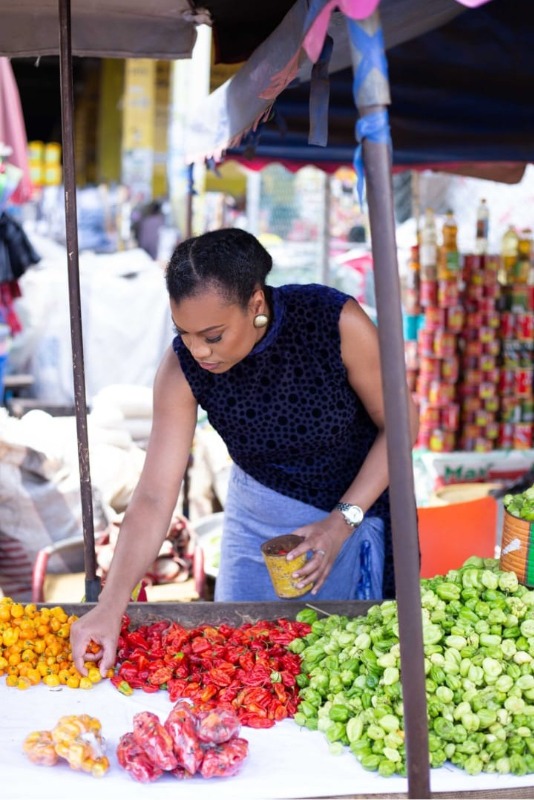search
date/time
 | Cumbria Times A Voice of the Free Press |
12:01 AM 18th October 2025
lifestyle
Transform Your Cooking With Extraordinary Ivorian Spices
Paule Beke, Chef at Douceurs D’ivoire

Paule Beke in action
It was only when I began visiting our local market with my mother that everything finally clicked into place. Standing in a bustling Abidjan market, surrounded by mounds of aromatic spices and herbs, I finally understood how the mysterious flavours that had been dancing on my palate throughout childhood actually worked.
These five Ivorian ingredients have remained constant companions throughout my culinary journey.

Baobab tree
Image by marclou from Pixabay
Long before baobab became a fashionable superfood, it was simply part of my Ivory Coast childhood landscape. The fruit of the majestic baobab tree comes naturally as a grain with a powdery texture and an earthy, citrusy taste that's wonderfully tart and refreshing.
The powder works beautifully as a thickening agent. I use it in fish reductions and bisques, where it adds both body and a subtle citrusy note that complements seafood perfectly.
Simple home application: Try whisking a teaspoon of baobab powder into plain Greek yoghurt with a drizzle of honey for breakfast. You can also add a pinch to smoothies for extra vitamin C, or use it as a natural souring agent in marinades for fish and chicken.
My fine dining twist: Create a baobab mousse by whisking the powder with double cream, a touch of sugar, and vanilla. It tastes remarkably similar to lemon meringue filling but with more depth and earthiness.
If baobab is gentle and citrusy, akpi is its bold, aromatic cousin. These small, dry seeds look deceptively like chickpeas, but their flavour is entirely different — fragrant, punchy, and spicy without being hot. Think of a complex curry blend compressed into a single ingredient.
Simple home application: Add a tiny amount to savoury pastry dough for tarts or quiches. It works similarly to how you might use saffron, providing aromatic depth without overwhelming other flavours. You can also sprinkle tiny amounts into salad dressings or mix into breadcrumb coatings for fish and chicken.
My fine dining twist: Create an akpi-crusted rack of lamb by mixing ground akpi with breadcrumbs, herbs and a little olive oil. The spice's natural oils help create a beautiful golden crust while infusing the meat with complex, aromatic flavours.
If there's one spice blend that epitomises the joy of West African street food, it's suya powder. This isn't just a single spice but a carefully balanced blend that typically includes chilli powder, cola nut, onion, and garlic as its foundation.
Suya gets its name from its traditional use with charred meats, particularly the beef and chicken skewers sold by street vendors throughout West and Central Africa.
Simple home application: Create suya mayonnaise by mixing one part suya powder with three parts good-quality mayonnaise, adding a squeeze of lemon or lime juice. For that classic West African barbecue taste, rub suya powder onto meat 30 minutes before cooking.
My fine dining twist: I sometimes incorporate tiny amounts of suya powder into chocolate truffles, where its earthy heat creates an unexpected but delightful contrast with rich, dark chocolate.
Soumbala might challenge Western palates initially, but persevere — it's absolutely worth it. Also known as iru in Nigerian cuisine or by its scientific name, locust beans, soumbala is fermented, then sun-dried, creating small, dark seeds that look rather like coffee beans and keep for years when properly stored.
The flavour is intensely earthy and deeply savoury, with a pronounced umami character.
Simple home application: Add half a teaspoon of ground soumbala to tomato-based pasta sauces or sprinkle a pinch over cooked rice for an immediate umami kick. You can also add pinches to soups, casseroles, or any slow-cooked dish that needs more savoury depth.
My fine dining twist: I've incorporated soumbala into a modern take on blanquette de veau, the classic French veal stew traditionally served with rice. Adding soumbala to the sauce bridges French technique with West African flavours.
Amanglin represents the more delicate side of Ivorian aromatics. Often called sacred basil, it has beautiful, fragrant leaves. The flavour profile is distinctly different from Mediterranean basil, being more peppery and punchy with complex herbal notes that you really need to taste to understand.
Simple home application: Try adding a few leaves to green salads where you might normally use basil. The peppery notes work particularly well with tomatoes, soft cheeses and olive oil-based dressings.
My fine dining twist: Infuse amanglin into cream for an unusual panna cotta that showcases its delicate herbal qualities. The dessert becomes a conversation starter — familiar in technique but surprising in flavour.
Embracing the adventure
These five spices represent a tiny fraction of West Africa's incredible culinary heritage, but they offer an excellent starting point for anyone curious about expanding their flavour repertoire. What I find most exciting is how they work both within traditional African dishes and as bridge ingredients in fusion cooking.

Paule Beke choosing ingredients
https://www.instagram.com/douceursdivoire